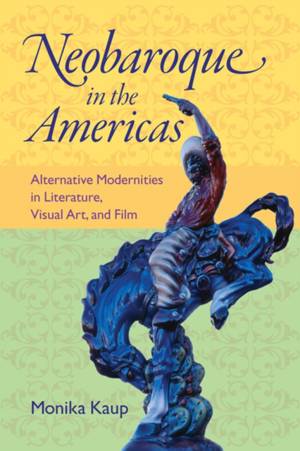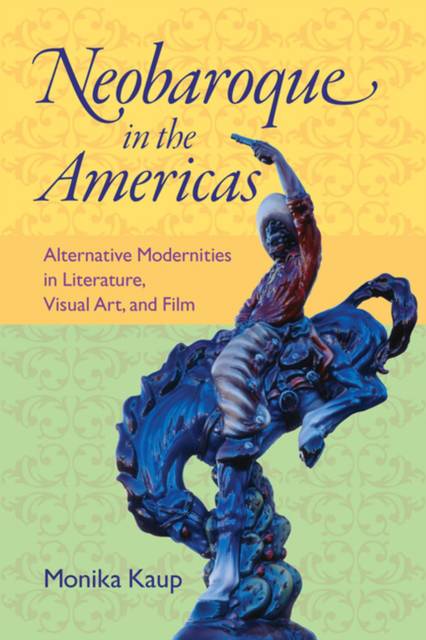
- Retrait gratuit dans votre magasin Club
- 7.000.000 titres dans notre catalogue
- Payer en toute sécurité
- Toujours un magasin près de chez vous
- Retrait gratuit dans votre magasin Club
- 7.000.0000 titres dans notre catalogue
- Payer en toute sécurité
- Toujours un magasin près de chez vous
Description
In a comparative and interdisciplinary analysis of modern and postmodern literature, film, art, and visual culture, Monika Kaup examines the twentieth century's recovery of the baroque within a hemispheric framework embracing North America, Latin America, and U.S. Latino/a culture. As "neobaroque" comes to the forefront of New World studies, attention to transcultural dynamics is overturning the traditional scholarship that confined the baroque to a specific period, class, and ideology in the seventeenth century. Reflecting on the rich, nonlinear genealogy of baroque expression, Neobaroque in the Americas envisions the baroque as an anti-proprietary expression that brings together seemingly disparate writers and artists and contributes to the new studies in global modernity.
Spécifications
Parties prenantes
- Auteur(s) :
- Editeur:
Contenu
- Nombre de pages :
- 392
- Langue:
- Anglais
- Collection :
Caractéristiques
- EAN:
- 9780813933139
- Date de parution :
- 07-11-12
- Format:
- Livre broché
- Format numérique:
- Trade paperback (VS)
- Dimensions :
- 155 mm x 231 mm
- Poids :
- 539 g

Les avis
Nous publions uniquement les avis qui respectent les conditions requises. Consultez nos conditions pour les avis.






